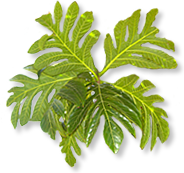Horticultural Practices
TPSS 364
Faculty:
Orville Baldos
Goals:
COURSE OBJECTIVE
This course is designed to be a horticultural field practices laboratory to introduce students to the basic theories, practices and techniques of horticultural science that create an sustainable management environment that protects the environment.
Skills and knowledge to be acquired:
STUDENT LEARNING OUTCOMES
At the conclusion of this course, the student should:
1. Have an understanding and appreciation for several cultural practices used in sustainable horticultural crop production and landscape operations.
2. Know basic horticultural terms, be familiar with basic horticultural tools and supplies, be able to make calculations for fertilizer and pesticide applications and have a basic understanding of the factors affecting plant growth.
3. Be able to grow and evaluate the performance and sustainability of a vegetable garden, gain experience and understanding of several horticultural production practices, and report on these in an intelligible and concise manner.
4. Organize duties and work compatibly with group members, and assume an equal share of group responsibility.
Pre-requisites:
TPSS 200 or concurrent
Course organization:
I. Overview of syllabus and course details, discuss class activities/experiments, pre-class survey and plot and crop assignments
II. Overview of land preparation and planting, tools (hand and mechanized)
III. Soil fertility, soil testing and plant nutrition sustainable input management
IV. Potting media, how to do experiments and basic agricultural statistics
V. Water management and irrigation
VI. Planting materials/varieties and morphology/anatomy of horticulturally important crops
VII. Overview of plant propagation techniques
VIII. Sustainable pest management and pesticide calibration
IX. Crop rotation, sustainable farming systems and agroforestry
X. Harvesting, maturity indices and postharvest operations


